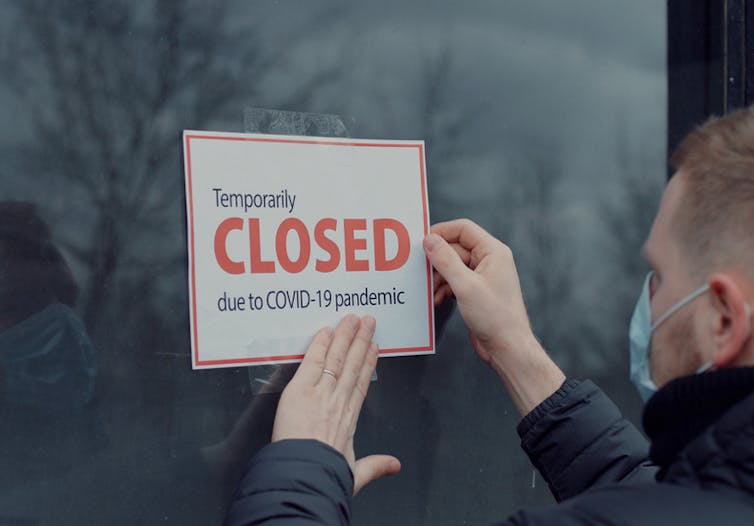Arturo Bris, International Institute for Management Development (IMD)
Until the Omicron variant hit the headlines, the signs were that 2021 was going to close with a stellar stock-market performance. Most markets have been on the rise since the beginning of the year, with the S&P500 up about 25% and the FTSE All Share index up by about 10%.
There had certainly been some concern that share valuations were irrationally high. This concern was justified – especially if we take into account that most markets closed 2020 on a positive note, too. Having experienced the worst pandemic in 100 years, and also a significant global recession, it seems nonsense that stock markets should have gone so high – yet there seemed no signs of anything that would stop them.
But then came the news of the Omicron variant and the fear that surrounds it, which led to a massive selloff on November 26 (and a partial rebound at the time of writing). So what should we make of this? Are financial markets acknowledging that we have been in a bubble, with share prices misaligned with the real economy, or is this just a temporary panic before a continuation upwards?
What we know so far
These are the facts: new coronavirus variant B.1.1.529 spread significantly in South Africa and Botswana and was identified as more contagious and less controllable than previously known variants. Daily cases in South Africa are now nearing 3,000, which is still not much more than one-tenth of the peak reached in July. Only 24.4% of the population is vaccinated.
Cases of the Omicron variant have now been detected in many other countries, including the UK, Egypt, Belgium and Ireland. With the World Health Organization (WHO) warning that the new variant was likely to spread further and “poses a very high global risk”, many countries have closed their borders to air traffic from southern Africa. Simultaneously, the US, UK, EU, India and several other nations have implemented new restrictions on mobility and travel.
Despite the panic, Dr Angelique Coetzee – the doctor who first spotted the new variant, who also chairs the South African Medical Association – has told the BBC that symptoms linked to Omicron have been extremely mild. Meanwhile, pharmaceutical companies are analysing whether their vaccines provide safe enough protection against Omicron, though we are yet to see conclusive results in any direction.
So it could well be that, despite the faster spread of the infection, its ultimate health, social and economic impact proves negligible. We simply do not know at this point. But detecting more uncertainty than before, financial markets have reacted with panic. For example, the S&P500 tumbled 2.3% on Friday November 26 only to rise 1.1% on Monday November 29. Most markets gave up between 2% and 4%, which is a pretty substantial one-day fall.
Future dangers
What worries me most about the current economic environment is not so much the possibility that a new wave of infections pushes the beginning of the recovery even further back, but that the great uncertainty regarding the end of the pandemic hinders our ability to make decisions for the future. For example, companies are deferring important investments until the dust clears (like expanding current businesses or making acquisitions). Similarly, staff increases may be put off to avoid the risk of downsizing if the pandemic worsens again.
The real concern is that this is for reasons that are difficult to resolve in any quick timeframe: the winding road towards immunising the whole world, the lack of information about the effectiveness of the vaccine against all possible COVID variants, and the feeling that we cannot see the light at the end of the tunnel because the tunnel is longer than we thought.

It does not bode well if we compare monthly stock returns of the S&P500 in 2020 and 2021. If we exclude January and February as pre-pandemic months in most countries in 2020 (and exclude December 2021 since we don’t yet have data), it is striking to observe that 2020 was better in six out of nine months (the exceptions being March, June and September).
I remember how, back on New Year’s Eve 2020, I toasted 2021 – thinking that it could not be any worse than what we were leaving behind. But it is becoming clear that uncertainty today is even greater than a year ago, when we did even not have the vaccines that we have today.
Until we know when we will get rid of this virus and how our economies will regain strength, it will be too early to talk about recovery. So while investors and pension holders may see markets rising further into irrational territory in the weeks and months ahead, they will also be vulnerable to unpredictable lurches back down.
Arturo Bris, Professor of Finance, International Institute for Management Development (IMD)
This article is republished from The Conversation under a Creative Commons license. Read the original article.












